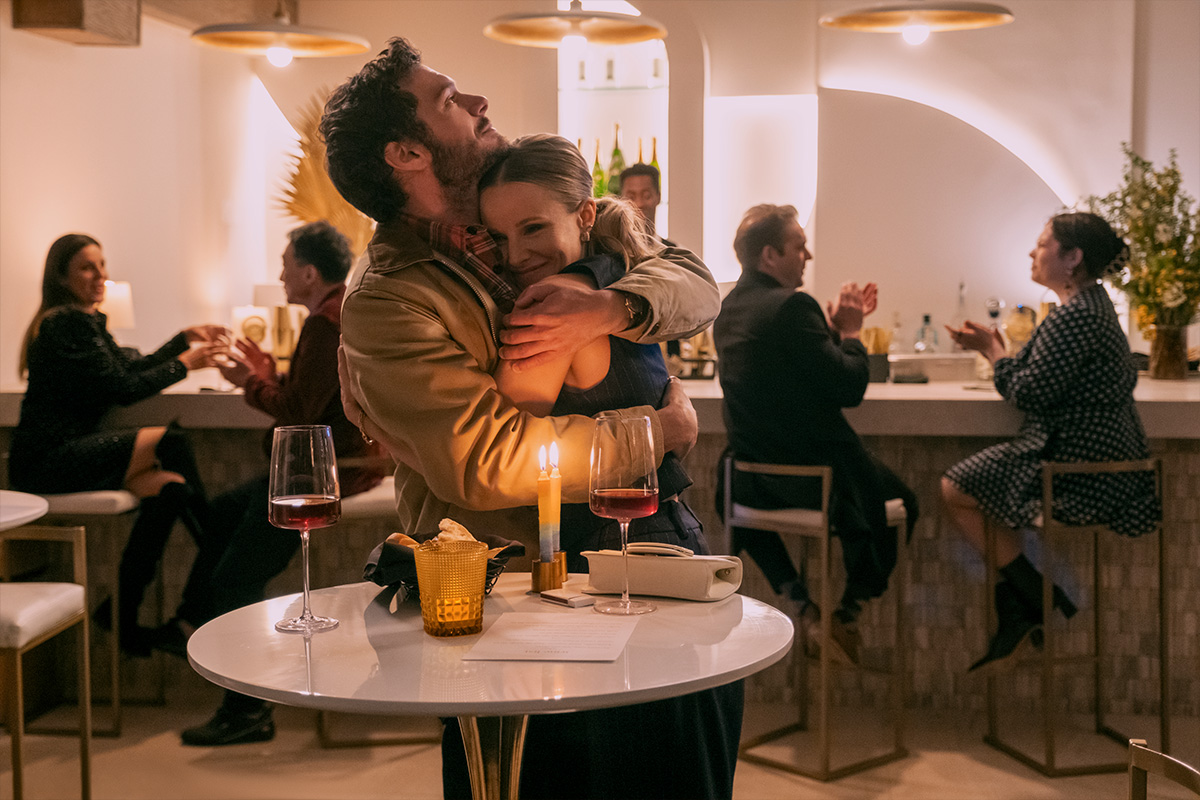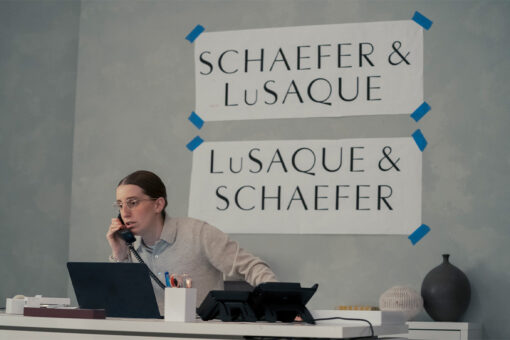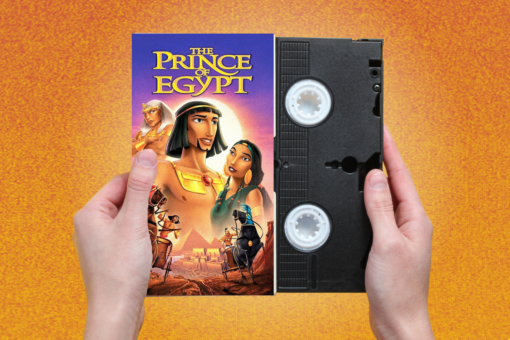As an intermarried rabbi and someone who works on the issue of intermarriage in Judaism, I watched “Nobody Wants This” with both excitement and trepidation. I was hoping relationships like mine, between a rabbi and someone who isn’t Jewish, would be featured with tenderness and care. But I worried, too, about stereotypes that might show up. I was cautiously optimistic; I wanted to love the show.
For the most part, the series did not disappoint. I loved the chemistry we see right away between the characters and then I loved the way their initial attraction deepened. Rabbi Noah (Adam Brody) enjoys sharing his religion and culture with Joanne (Kristen Bell). Even though the characters keep using the derogatory term “shiksa” to describe Joanne, it’s clear that part of her attraction to Noah is his commitment to Judaism, and what that commitment represents about his personality and his core values. When he describes why he originally wanted to become a rabbi — the traditions and rituals made him feel grounded in a scary world — Joanne is more drawn to him, not less. Meanwhile, Rabbi Noah is drawn to Joanne for her values as well. He sees past her anxiety and her self-sabotaging tendencies and appreciates her mind and her worldview. Theirs is not a shallow relationship.
This seemed to me quite true to how a lot of interfaith/intercultural relationships work. The differences are not barriers to connection and closeness — they often facilitate these very things. I loved watching how Noah delighted in sharing his Judaism with Joanne. Many couples I serve as rabbi, and my own relationship, work just this way; being intermarried can actually deepen one’s connection to Judaism, despite stereotypes.
Speaking of those stereotypes, all of the women in Noah’s life are against this relationship. The portrayal of Jewish femininity left much to be desired. Nevertheless, the relationship is not particularly threatened by the familial angst (indeed, Joanne’s initial rejection by the family makes her even more committed to winning them over). The real challenge for the couple is that the head rabbi of Noah’s synagogue makes clear that Noah’s own promotion to head rabbi will be dependent on him marrying a Jewish woman.
I appreciated this realistic portrayal, and it also saddened me. My experience is that it is often the judgment, pressure and exclusion of the Jewish community that leads to relationship strife in intermarriages, not the dynamics in the relationships themselves. If the community and his family had been welcoming of Joanne — if Rabbi Noah could determine for himself, free of external pressure, if he and Joanne were truly compatible — none of the challenges would exist. And sure, that lack of conflict might make for a more challenging time writing the script… but rom coms find conflict in all sorts of places all the time. It made me really sad to witness the sole source of conflict in this show center around the judgment on interfaith relationships.
In one heartbreaking scene, the head rabbi tells Noah that if he marries someone who isn’t Jewish there will be no Jewish kids and then no more Judaism. This is a very familiar refrain heard by intermarried folks, and it is incredibly painful. It is simply not true that intermarriages mean no more Jews. I raise my kids Jewish, and so do a majority of other intermarried couples, according to data from the Pew Research Center. Moreover, should Noah not be able to determine for himself whether to have children and how to raise them?
This points to larger issues in the rabbinate. In the show, Noah’s ex-girlfriend tells Joanne that to marry him would mean taking on an identity of “the rabbi’s wife,” for being a rabbi is not a job but is someone’s whole life. While this can sometimes be true, it is also unfair. Rabbis are humans, messy and complex, and often burn out trying to live up to the pressure of being a perfect role model. But more importantly — and this is key to understanding this show — I believe it would enhance Noah’s role as a leader to be an intermarried rabbi.
It isn’t clear what denomination Noah’s synagogue is, but based on clues I’d say Reform. We know it isn’t Orthodox and we therefore know that a majority of Noah’s congregants will either be intermarried or the parents of intermarrying adult children. As his career continues these rates will only increase, for younger Jews are much more likely to intermarry.
If Rabbi Noah is to serve as a role model, it makes sense that his partner — his family — reflects his community. This idea that a rabbi must be a perfect person, a perfect Jew, and that part of being perfect is to marry someone Jewish, is flawed in many ways. One can be a “good Jew” and be intermarried. People do not need role models they can’t live up to. People need leaders who can show them how to live meaningful Jewish lives in all of their complexity.
Being an intermarried rabbi has never stopped me from being an effective Jewish leader. In fact, it has often helped me empathize with and counsel those who are facing the questions that may come up in an intermarriage: issues of conversion, marriage rituals, circumcision and beyond. Crucially, it has helped me create a community where Jews and their loved ones are fully welcome and included. We do not pry into the personal lives of our community members. We embrace all who wish to be with us. Because we do not impose barriers, we have people who want to be there, Jewish and not Jewish. That is what Jewish continuity looks like.
Joanne shows up to Shabbat services, joins the havdalah ritual and does the hora at Noah’s niece’s bat mitzvah. She does not need to be Jewish to gain wisdom and joy from these experiences. Noah does not need for her to be Jewish to gain appreciation for these rituals, and for Joanne, in the act of sharing them with her. It seems his own Judaism deepens in seeing it through her eyes. This too could be a story of Jewish continuity. I hope there is a season two of “Nobody Wants This” and I hope that it highlights how Noah could indeed have both his career as a head rabbi and his relationship. Perhaps his community, his family and Noah and Joanne themselves will learn that intermarriage need not mean a grim end to Judaism in someone’s life and in the world. And perhaps we can use this beautiful relationship portrayed on our TV screens as a way to move the cultural conversation in our own families, communities and synagogues forward. Intermarried Jews deserve that, and it will benefit Judaism as a whole, too.



